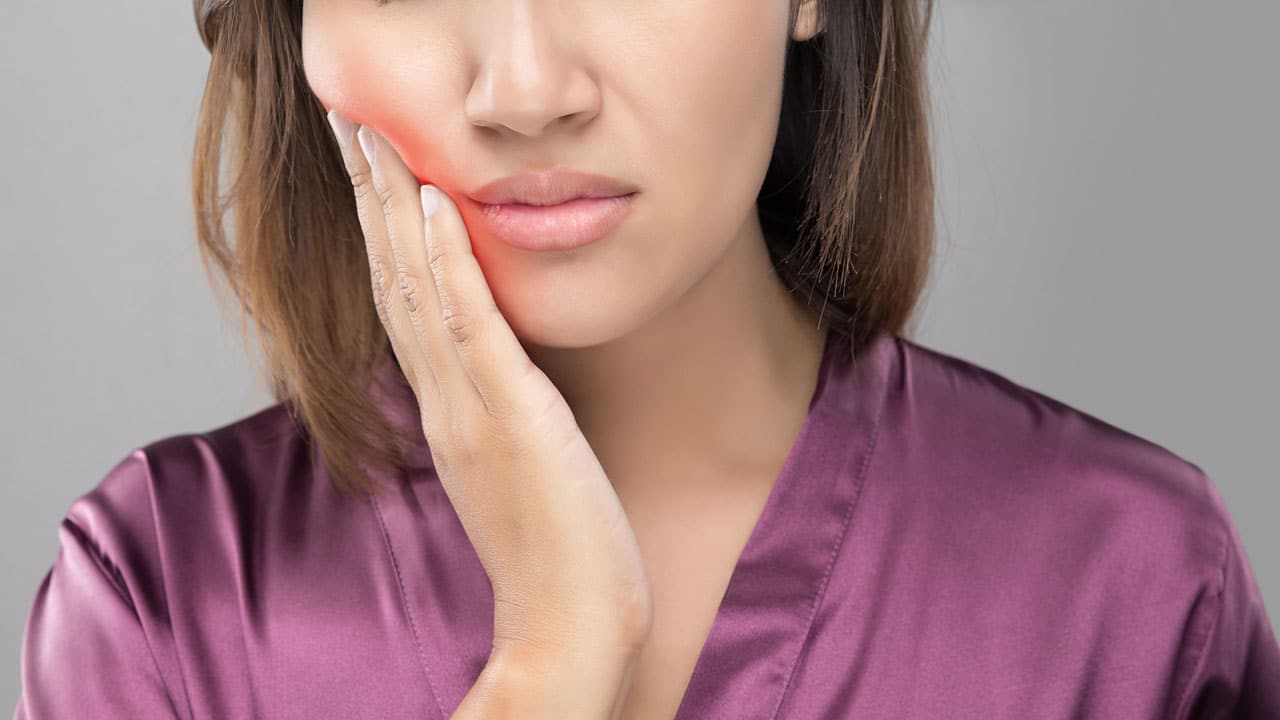
Are you dealing with constant jaw or facial pain, headaches, or earaches? You may have heard people suggest TMJ as a possible culprit, or maybe you’ve even received a diagnosis from the dentist. But what exactly is this common condition?
Temporomandibular joint disorder (commonly referred to as TMJ) is a painful condition that affects millions of Americans. These joints connect the jawbone to your skull and make movements involved in chewing and speaking possible. Therefore, any condition that obstructs these movements can result in chronic pain.
Chronic? As In, No Cure?
TMJ isn’t a disease, so there’s no cure, per se. The good news is that TMJ is generally temporary and treatable. Your dentist can offer solutions, but that’s not all you’ll need—knowing the root of the problem is also key to fixing the issue for good.
What Are the Causes of TMJ?
There are numerous reasons as to why you may be experiencing TMJ disorder. Here are a few common causes behind the issue:
- Poor Posture. When you slouch, your spine is misaligned and your jaw shifts forward. This can throw off the alignment of your upper and lower teeth, putting stress on the muscles and the joints. Left untreated, this can cause inflammation in the muscles as the mouth opens and closes.
- Arthritis. Arthritis is actually one of the most common causes of TMJ disorder. It affects your jaw joints just like it would other joints in the body.
- Stress. Stress and worry, or even extreme physical exertion, have a tendency to lead to clenching the jaw and grinding the teeth. Overuse of the jaw muscles in this way can aggravate TMJ.
- Jaw Injury. Injury to the jaw can cause damage in the joint. Bleeding or torn cartilage, and the swelling that comes with such injuries, can keep the jaw from opening correctly, leading to joint pain.
- Misaligned Bite. When your teeth do not line up correctly, it can cause tension in the muscles that allow you to chew. This can result in TMJ disorder over time.
While we’re at it, it is important that we discuss some myths surrounding the causes of TMJ. Make sure not to fall into any of the following pitfalls regarding the root cause of your jaw pain.
- It’s Not Genetic. TMJ is not a disease and can’t be passed on through your genes. However, some of the risk factors can be passed on biologically, or through habits and learned behaviors modeled by parents and caretakers.
- Chewing Gum. Chewing is actually good for the Temporomandibular joints. However, if your joints are already sore for any other reason, chewing will exacerbate the pain, making it seem like a cause.
- Chewing Harder Foods. These joints are built to withstand chewing any healthy food, hard or soft. Again, if you’re having pain while chewing, see your dentist. There may be something more serious going on.
Treatment Options
If your chronic pain doesn’t go away on its own, or gets worse instead of better, seek professional help. Treatment options range from simple medications or mouth guards to surgery in extreme cases. Knowing the possible causes will also help your dentist hone in on habits that may need changing. If you’re experiencing any pain that may be related to TMJ, set up a consultation with your dentist today.
Contact Meadows Dental Care in Palatine to make an appointment and start on the road to relief.